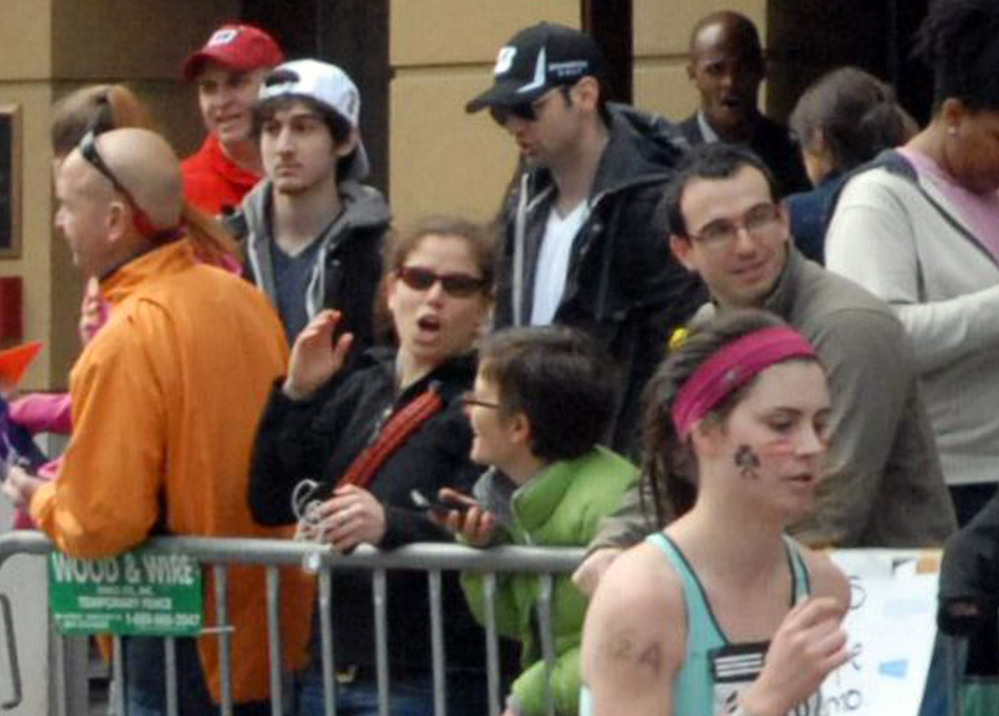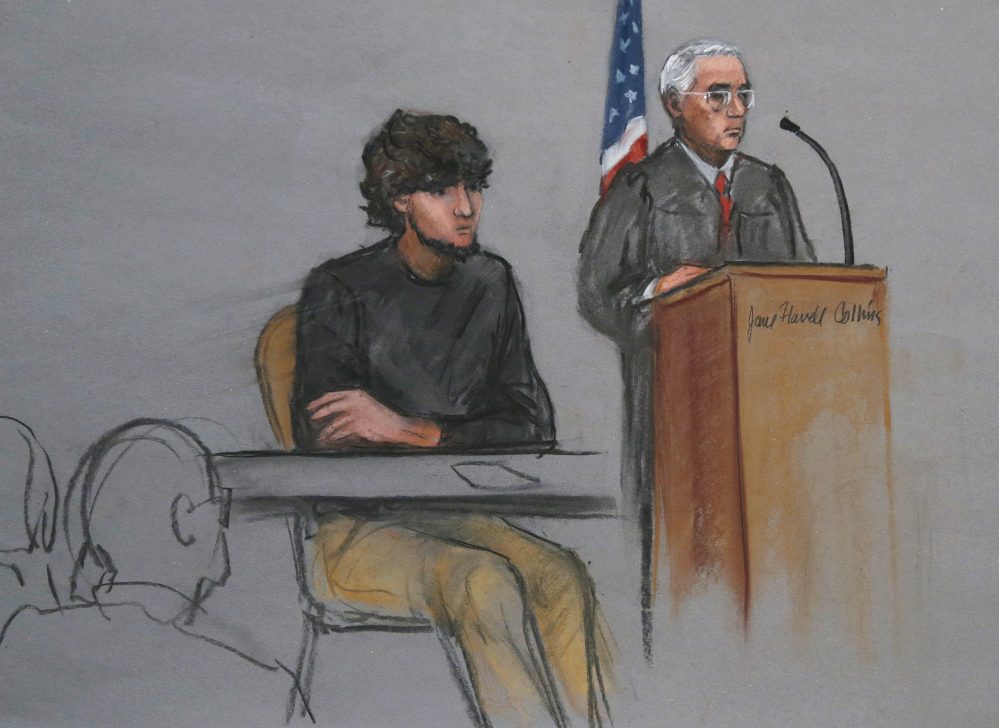BOSTON – In the two years since twin bombs tore through crowds at the Boston Marathon finish line, the case against suspect Dzhokhar Tsarnaev has focused on arguments over where his trial should be held, who should sit on the jury and what evidence prosecutors should be allowed to use.
But starting Wednesday, a day after a jury was selected, the focus will shift dramatically from the legal process to the harsh reality of what happened that day: the explosions, the screams, the chaos and the blood.
Prosecutors are expected to present graphic images of the carnage caused by the bombs, including a surveillance video that authorities say shows Tsarnaev placing a backpack just feet from 8-year-old Martin Richard and his family. The boy died in the explosion.
The bombs set April 15, 2013, killed three people and injured more than 260. At least 16 people lost limbs.
“When people start streaming into that courthouse – many with missing limbs – and the prosecutors get up off their chairs and start talking about this again, people are going to relive the enormity and the awful nature of this,” said Gerry Leone, a former state and federal prosecutor who led the prosecution of shoe bomber Richard Reid but is not involved in the Tsarnaev case.
“It wouldn’t surprise me to see the young boy’s parents as the first witnesses. Oftentimes, in a homicide case, you humanize the victims right away, and you’re brought right back to that day,” Leone said.
A blast from the second bomb killed Martin and tore off his 7-year-old sister’s left leg. Lingzi Lu, 23, a Boston University graduate student, was also killed by that blast. Krystal Campbell, a 29-year-old restaurant manager from Medford, was killed by the first bomb.
Authorities say Tsarnaev, then 19, and his older brother, Tamerlan, 26 – ethnic Chechens who had lived in the former Soviet republic of Kyrgyzstan and the volatile Dagestan region of Russia – carried out the bombings to retaliate against the U.S. for wars in Iraq and Afghanistan. The brothers came to the U.S. with their parents and two sisters about a decade before the bombings.
Tamerlan Tsarnaev died following a shootout with police several days after the bombings. Dzhokhar Tsarnaev, now 21, faces 30 federal charges in the bombings and in the fatal shooting of a Massachusetts Institute of Technology police officer days later. Seventeen of the charges carry the possibility of the death penalty.
Some bombing survivors have said they plan to attend the trial; others say they have no desire to be there.
“It’s not something I feel I need to do,” said Jarrod Clowery, who suffered burns and shrapnel wounds. “I have closure in my life. I’m happy. I have a second chance at life, and I’m living it.”
Clowery was watching the marathon with his friends, Paul and J.P. Norden, when the bombs exploded. The Nordens each lost a leg.
The Norden brothers also plan to stay away from the trial, but their mother, Liz, plans to be there every day. The trial is expected to last three to four months.
“It’s important to me. I take it personally, what happened to my family,” she said.
In addition to the video, prosecutors also plan to show jurors what they call a confession Tsarnaev scrawled inside the boat he was hiding in.
“The US Government is killing our innocent civilians but most of you already know that. … I can’t stand to see such evil go unpunished. We Muslims are one body, you hurt one you hurt us all,” the note allegedly says.
“Stop killing our innocent people and we will stop.”
Tsarnaev’s lawyers have made it clear that they plan to depict Tamerlan Tsarnaev as the mastermind of the attack and a powerful force in his brother’s life.
Legal analysts say portraying Tamerlan as a coercive influence will likely not be enough to win Dzhokhar an acquittal but could be a significant piece of the defense argument against the death penalty. After the guilt phase of the trial, the same jury will decide whether he should be sentenced to life in prison without parole or the death penalty.
The jury was chosen Tuesday after nearly two months of jury selection. The all-white panel consists of 10 women and eight men, including a self-employed house painter, an air traffic controller, a former emergency room nurse and an executive assistant at a law firm.
Tsarnaev may also get some help from his family. One of his sisters, Ailina Tsarnaeva, plans to attend at least part of the trial.
Liz Norden said she can’t quite put her finger on why she feels such a strong need to be there.
“It’s not about going and looking evil in the eye and seeing him. I realize I will never get the answers, but it’s just very important to me that I go and see.”
Send questions/comments to the editors.




Success. Please wait for the page to reload. If the page does not reload within 5 seconds, please refresh the page.
Enter your email and password to access comments.
Hi, to comment on stories you must . This profile is in addition to your subscription and website login.
Already have a commenting profile? .
Invalid username/password.
Please check your email to confirm and complete your registration.
Only subscribers are eligible to post comments. Please subscribe or login first for digital access. Here’s why.
Use the form below to reset your password. When you've submitted your account email, we will send an email with a reset code.